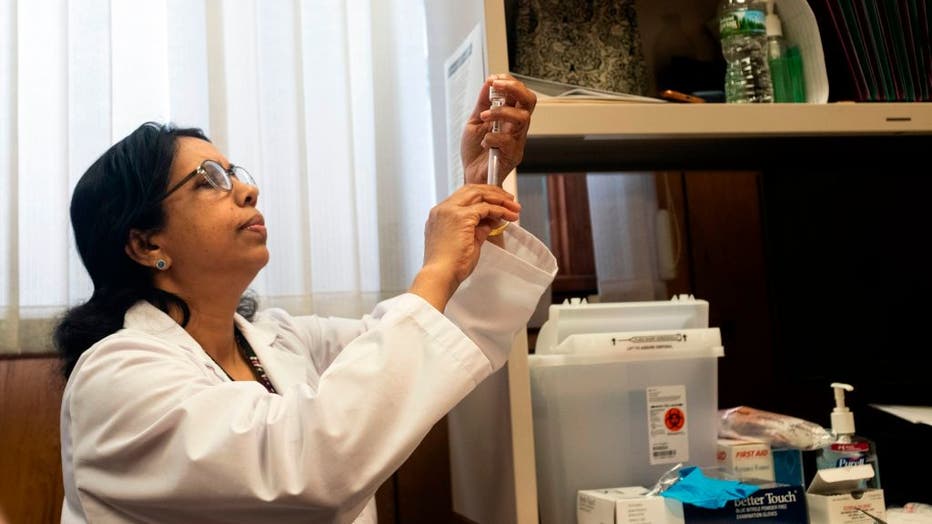CDC updates measles prevention guidelines for travelers
The Centers for Disease Control and Prevention has updated its guidelines for measles prevention when traveling as cases continue to rise abroad and within the U.S.
The agency is now advising future travelers to consult their doctor at least six weeks before their trip if they're unsure if they have received the MMR vaccine. Previous guidelines suggested people making a doctor's appointment a month out before the trip.
Measles is a contagious virus still common in many countries outside the U.S. Cases in the U.S. originate from international travelers — most often Americans who have not been vaccinated, according to the CDC.
RELATED: CDC dispatches team to Chicago as measles cases prompt concerns
Measles spreads when infected people exhale, cough and sneeze the viruses — it can linger in the air and on surfaces for two hours, infecting numerous people. An infected person can be contagious for four days before symptoms appear, including the telltale rash, fever, cough, runny nose and watery eyes.

This picture taken on April 5, 2019 shows a nurse preparing the measles, mumps and rubella vaccine at the Rockland County Health Department in Haverstraw, Rockland County, New York. (Photo credit should read JOHANNES EISELE/AFP via Getty Images)
Vaccinated people rarely catch the disease and if they do, their symptoms are less severe and they are less contagious, the CDC says.
The vaccine against measles is not recommended during pregnancy or for children younger than 1.
While most people who catch measles recover without significant problems, an unvaccinated person who catches measles has about a 20% chance of being hospitalized, the CDC says.
RELATED: If you were vaccinated for measles in the 1970s and 80s you may not be protected: Doctors
About 5% of infected children get pneumonia and about 1 in every 1,000 will develop brain swelling, which can cause deafness or intellectual disability. Between 1 and 3 of every 1,000 infected children who weren't vaccinated will die from the disease, the CDC says.
Before measles vaccinations began in 1963, more than 400,000 Americans annually caught the disease. The numbers dropped dramatically to 47,000 cases in 1970 and 13,000 in 1980. After a bump to 27,000 in 1990, the number of reported infections in 2000 was less than 100.
The Associated Press contributed to this report. This story was reported from Los Angeles.

